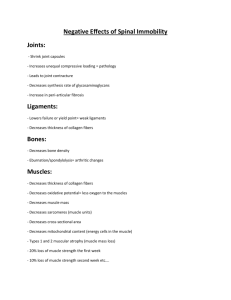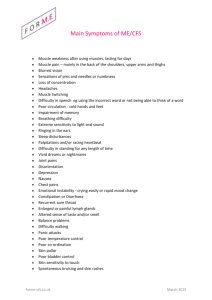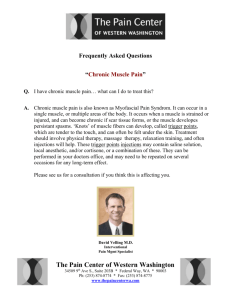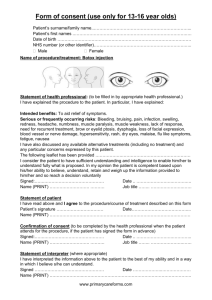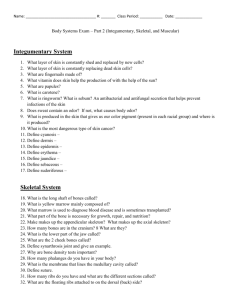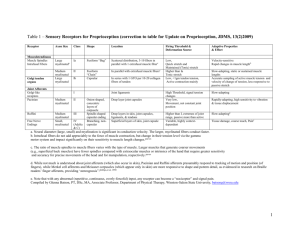Muscle infection in chronic hepatitis B
advertisement
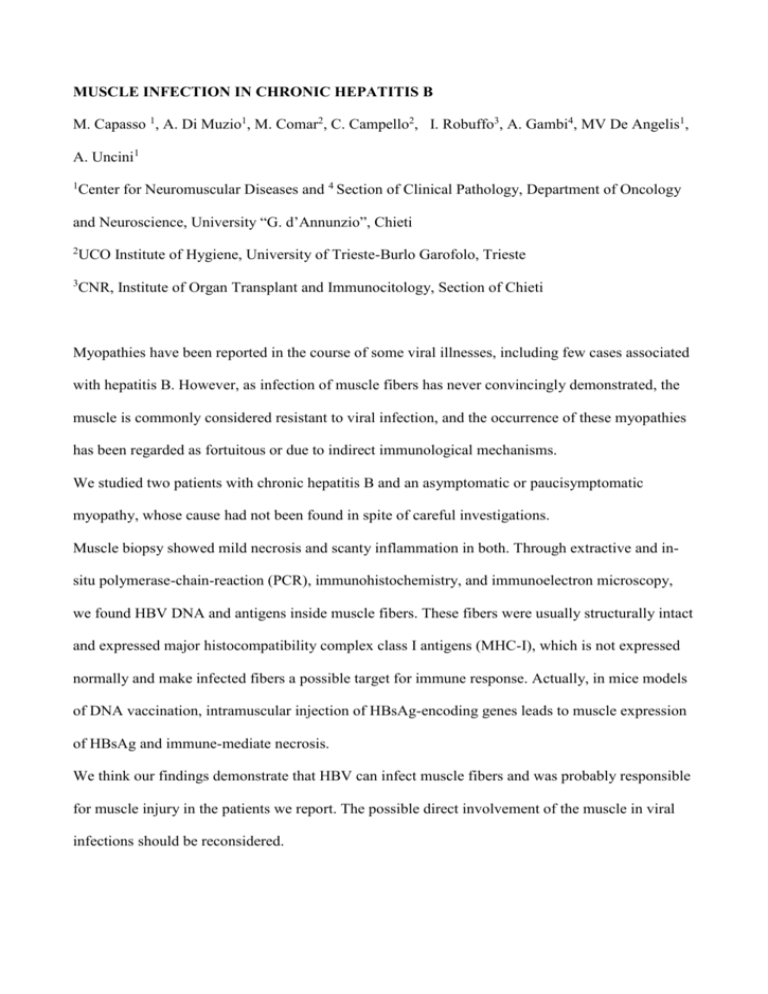
MUSCLE INFECTION IN CHRONIC HEPATITIS B M. Capasso 1, A. Di Muzio1, M. Comar2, C. Campello2, I. Robuffo3, A. Gambi4, MV De Angelis1, A. Uncini1 1 Center for Neuromuscular Diseases and 4 Section of Clinical Pathology, Department of Oncology and Neuroscience, University “G. d’Annunzio”, Chieti 2 UCO Institute of Hygiene, University of Trieste-Burlo Garofolo, Trieste 3 CNR, Institute of Organ Transplant and Immunocitology, Section of Chieti Myopathies have been reported in the course of some viral illnesses, including few cases associated with hepatitis B. However, as infection of muscle fibers has never convincingly demonstrated, the muscle is commonly considered resistant to viral infection, and the occurrence of these myopathies has been regarded as fortuitous or due to indirect immunological mechanisms. We studied two patients with chronic hepatitis B and an asymptomatic or paucisymptomatic myopathy, whose cause had not been found in spite of careful investigations. Muscle biopsy showed mild necrosis and scanty inflammation in both. Through extractive and insitu polymerase-chain-reaction (PCR), immunohistochemistry, and immunoelectron microscopy, we found HBV DNA and antigens inside muscle fibers. These fibers were usually structurally intact and expressed major histocompatibility complex class I antigens (MHC-I), which is not expressed normally and make infected fibers a possible target for immune response. Actually, in mice models of DNA vaccination, intramuscular injection of HBsAg-encoding genes leads to muscle expression of HBsAg and immune-mediate necrosis. We think our findings demonstrate that HBV can infect muscle fibers and was probably responsible for muscle injury in the patients we report. The possible direct involvement of the muscle in viral infections should be reconsidered.
